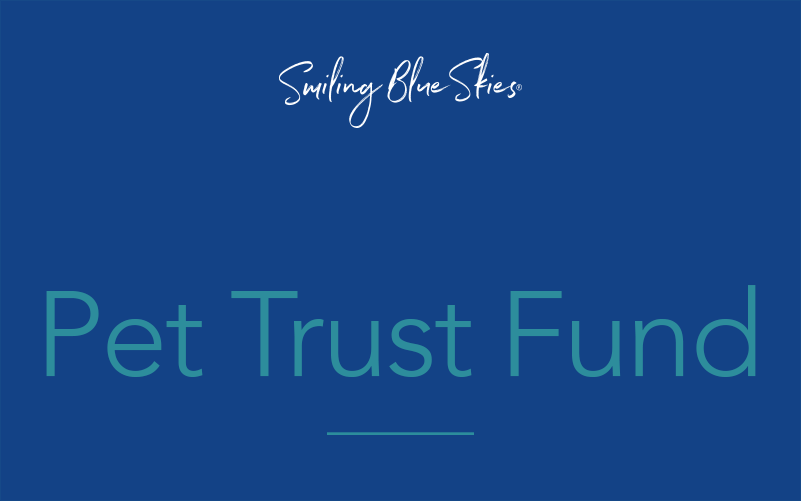Here are three ways, our dogs are benefiting, due to your continued support of The Smiling Blue Skies Cancer Fund.
Treatment of Canine Lymphoma: Lymphoma is one of the most common forms of malignant cancer in dogs. A number of treatment protocols have been developed using anti-cancer drugs and radiation therapy, but there is little evidence to support using one protocol over another. The goal of this retrospective study, is to determine the different response times, prognostic factors and side effects associated with the different treatment protocols. Results should help doctors determine which treatment to give and how to modify treatment when side effects are encountered.
Renewal of Funds: Gene Profiling of Canine Lymphosarcoma: Lymphosarcoma, a serious cancer of the immune system, is one of the most common forms of cancer in dogs. Patients generally respond well to chemotherapy. However, the response of an individual dog’s cancer to a given treatment is unpredictable, suggesting the molecular characteristics of the disease are quite variable. The goal of this ongoing study, is to identify genetic markers that could be used to better predict prognosis and response to therapy. This would help veterinarians and clients make more informed choices about drug protocols.
Evaluating Low Dose Chemotherapy: Metronomic chemotherapy is a new approach to cancer treatment in which drugs are administered in lower doses but more frequently than in traditional therapy. The approach is less toxic and much less draining physically and emotionally, and it may also prolong survival times. This study will employ metronomic chemotherapy in the treatment of Hemangiosarcoma, an aggressive cancer originating in the blood vessels of organs such as the spleen, heart, liver, and lungs. Metronomic chemotherapy inhibits the growth of new blood vessels rather than indirectly attacking the tumour through massive doses of toxic drugs. Therefore, it may prove more effective than traditional treatments, that produce severe side effects with little overall benefit in terms of remission or survival rates.
Here are other ways, your support has helped us take a bite out of canine cancer:
The teaching hospital is now able to offer expanded services in cancer treatment for companion animals because of upgrades to the radiation therapy unit, made possible by support from Pet Trust. For pets with cancer, radiation therapy can help to ease pain, relieve cancer symptoms, and curtail the spread of the disease.
Pet Trust Study for Winter 2004: Anti-cancer chemotherapy often results in a lowering of blood platelets, which can cause spontaneous bleeding. This side effect limits the use of some anti-cancer drugs. The purpose of this study is to test whether lithium carbonate, an inexpensive drug, can protect dogs against developing low platelet numbers when receiving anti-cancer drugs known to cause low platelets.
Pet Trust Study for Winter 2004: Osteosarcoma is the most common bone tumour in dogs. This is an ongoing Pet Trust study, initially funded in the fall of 2003 funding competition. The study is investigating whether chemotherapy prior to surgery (limb amputation) improves the survival time for dogs with osteosarcoma.
As of August 8, 2008, The Smiling Blue Skies Cancer Fund,
has raised over $250,000.00 for cancer treatment and research,
and the building of Canada’s first cancer centre for companion animals.

